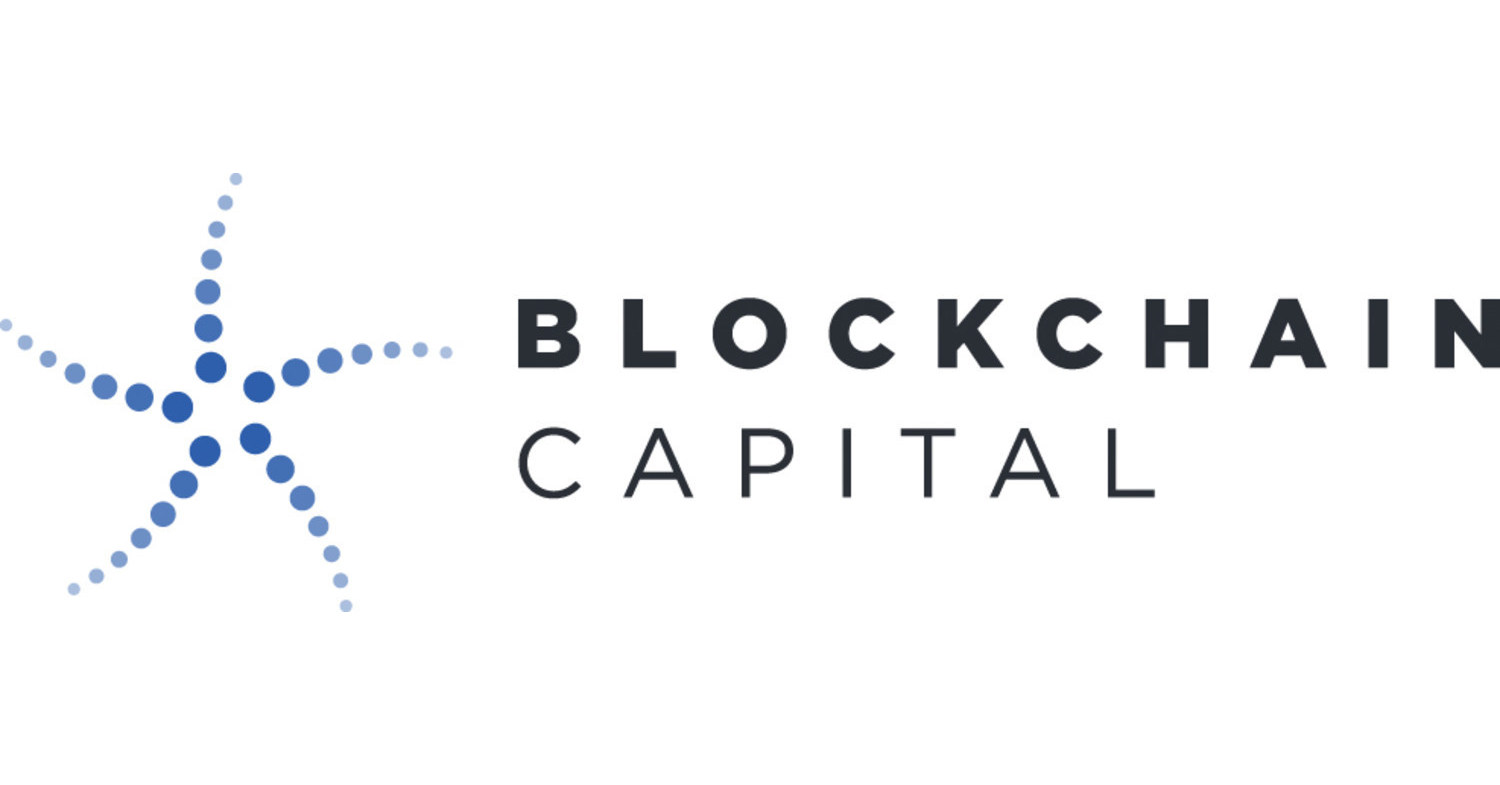Blockchain Capital is a leading venture capital firm in the blockchain industry. It focuses on early-stage investments in blockchain technology.
Blockchain Capital has been instrumental in funding and supporting innovative blockchain projects since its inception in 2013. The firm aims to drive the advancement of blockchain technology by investing in visionary entrepreneurs and cutting-edge startups. Their portfolio includes prominent companies such as Coinbase, Ripple, and Kraken, reflecting their keen eye for potential.
Blockchain Capital’s expertise lies in identifying and nurturing early-stage ventures, providing not just capital but also strategic guidance. Their commitment to the blockchain ecosystem positions them as a key player in fostering growth and innovation within the industry. This approach ensures a positive impact on the future of blockchain technology.
Introduction To Blockchain Capital
Blockchain Capital is a major player in the world of finance. It is at the forefront of the blockchain revolution. Understanding it is key for modern finance enthusiasts.
What Is Blockchain Capital?
Blockchain Capital is a venture capital firm. It focuses on blockchain technology and cryptocurrency. Founded in 2013, it has grown rapidly. Its mission is to help build the blockchain ecosystem.
The firm invests in blockchain startups. These startups aim to innovate and transform industries. Blockchain Capital supports entrepreneurs and developers. They provide resources and guidance to foster growth.
Importance In Modern Finance
Blockchain Capital has a huge impact on modern finance. It drives innovation in the blockchain sector. This technology offers secure, transparent transactions. It reduces the need for intermediaries, lowering costs.
Here are some key benefits of blockchain in finance:
- Enhanced security
- Greater transparency
- Faster transactions
- Lower costs
The firm also aids in regulatory compliance. This is crucial for the adoption of blockchain technology. They work with regulators to ensure a safe environment. This fosters trust and facilitates widespread use.
Here is a quick overview:
| Benefit | Description |
|---|---|
| Security | Blockchain offers robust security features. |
| Transparency | All transactions are transparent and traceable. |
| Speed | Transactions are processed much faster. |
| Cost | Reduces the need for intermediaries, lowering costs. |

Credit: www.theblock.co
Core Principles
Blockchain Capital operates on foundational principles that guide its mission. These core principles ensure the integrity and effectiveness of its operations. Two key principles are Decentralization and Transparency.
Decentralization
Decentralization is a core principle of Blockchain Capital. It means there is no central authority. Instead, power is distributed across the network.
This approach has several benefits:
- Enhanced security: No single point of failure.
- Greater trust: Users control their data.
- Increased efficiency: Direct transactions without intermediaries.
| Benefit | Description |
|---|---|
| Enhanced Security | No single point of failure. |
| Greater Trust | Users control their data. |
| Increased Efficiency | Direct transactions without intermediaries. |
Transparency
Transparency is another core principle. Blockchain Capital ensures all transactions are visible. This builds trust among users.
Key aspects of transparency include:
- Open Ledger: All transactions are recorded publicly.
- Immutable Records: Transactions cannot be altered once recorded.
- Accountability: Users can verify each transaction.
Transparency helps in:
- Building trust: Users see and verify transactions.
- Preventing fraud: Immutable records ensure no tampering.
- Ensuring fairness: Everyone has equal access to information.
| Aspect | Description |
|---|---|
| Open Ledger | All transactions are recorded publicly. |
| Immutable Records | Transactions cannot be altered once recorded. |
| Accountability | Users can verify each transaction. |
Key Technologies
Blockchain Capital stands on advanced technologies. These technologies make blockchain systems secure and efficient. Below are the key technologies driving Blockchain Capital.
Smart Contracts
Smart contracts are self-executing contracts. They run on blockchain networks. Smart contracts automate agreements. They reduce the need for intermediaries. This technology ensures transparency and trust. Smart contracts are coded with predefined rules. These rules trigger actions when met. The process is faster and safer. Businesses benefit from reduced costs and errors.
Cryptographic Security
Cryptographic security is crucial in blockchain technology. It ensures data safety and privacy. Blockchain uses cryptographic methods like hashing and encryption. Hashing converts data into a unique code. This code is secure and unchangeable. Encryption transforms data into a secret format. Only authorized users can access encrypted data.
| Cryptographic Method | Function |
|---|---|
| Hashing | Converts data into a unique, fixed-length code |
| Encryption | Transforms data into a secret format |
These cryptographic methods protect data integrity. They prevent unauthorized access and tampering. Blockchain Capital relies on these technologies for secure transactions.
Major Applications
Blockchain technology has revolutionized many industries. Its major applications include cryptocurrencies and decentralized finance (DeFi). Both have transformed financial systems, providing new opportunities and solutions.
Cryptocurrencies
Cryptocurrencies are digital or virtual currencies. They use cryptography for security. Bitcoin was the first and remains the most popular. Other examples include Ethereum, Ripple, and Litecoin.
Cryptocurrencies offer several benefits:
- Secure transactions
- Lower transaction fees
- Global accessibility
- Decentralization
Businesses and individuals can use cryptocurrencies for various purposes:
- Online purchases
- Investment opportunities
- Remittances
- Smart contracts
Overall, cryptocurrencies have reshaped the financial landscape. They provide a new way to handle money and transactions.
Decentralized Finance (defi)
Decentralized Finance (DeFi) is another significant application of blockchain. DeFi aims to build financial systems without traditional intermediaries like banks. It offers financial services using blockchain technology.
Defi provides various services:
| Service | Description |
|---|---|
| Lending and Borrowing | Users can lend or borrow assets directly. |
| Decentralized Exchanges (DEXs) | Trade cryptocurrencies without a central authority. |
| Stablecoins | Cryptocurrencies that aim to maintain a stable value. |
| Yield Farming | Earn rewards for providing liquidity. |
Defi benefits include:
- Transparency
- Accessibility
- Lower costs
- Interoperability
DeFi has opened new possibilities for financial inclusion and innovation. It reduces reliance on traditional financial institutions.
Benefits For Investors
Investing in Blockchain Capital offers numerous advantages. It provides a secure and cost-effective investment environment. The benefits are especially significant for investors seeking transparency and efficiency.
Increased Security
Blockchain technology ensures enhanced security for investors. All transactions are encrypted. This encryption protects sensitive information from unauthorized access. Each transaction is verified by a network of computers. This process reduces the risk of fraud and cyber-attacks.
Investors can track their transactions in real time. This transparency builds trust and confidence. The decentralized nature of blockchain means no single point of failure. This feature further enhances the security of investments.
Reduced Costs
Blockchain Capital investments often involve lower costs. Traditional financial systems require intermediaries. These intermediaries charge fees for their services. Blockchain eliminates the need for these middlemen.
Investors save money on transaction fees. This cost-saving can significantly increase overall returns. Blockchain also reduces the time taken for transactions. Faster transactions mean less time waiting for funds to clear.
| Traditional Investment | Blockchain Investment |
|---|---|
| High Transaction Fees | Low Transaction Fees |
| Slow Processing Time | Fast Processing Time |
| Centralized Control | Decentralized Control |
Overall, Blockchain Capital presents a compelling choice. Its security and cost advantages make it an attractive option for investors. It provides a modern, efficient way to manage investments.

Credit: www.prnewswire.com
Challenges And Risks
Blockchain Capital is an exciting field with many opportunities. But, it also comes with several challenges and risks. These issues need careful attention to ensure success. Let’s explore some of these challenges.
Regulatory Hurdles
One major challenge in Blockchain Capital is regulatory hurdles. Different countries have different laws. This makes it hard for blockchain projects to operate smoothly.
In some places, regulations are unclear. This creates uncertainty for businesses. They don’t know if their projects comply with the law. This uncertainty can cause delays and increase costs.
Another issue is the rapid change in regulations. Laws can change overnight. Businesses must stay updated to avoid legal problems.
| Country | Regulatory Environment |
|---|---|
| USA | Strict and complex |
| Japan | More open but evolving |
| China | Very restrictive |
Market Volatility
Market volatility is another significant risk. Cryptocurrency prices can change rapidly. This makes investing in blockchain projects risky.
Prices can drop suddenly. Investors can lose a lot of money quickly. This makes it hard to predict returns on investment.
Market volatility also affects businesses. They may face cash flow problems. They might struggle to pay their bills if cryptocurrency prices fall.
- Unpredictable price changes
- High risk of financial loss
- Cash flow issues for businesses
These challenges and risks are important to consider in Blockchain Capital. Navigating them successfully requires careful planning and awareness.
Future Trends
Blockchain Capital is at the forefront of financial innovation. As the world evolves, several trends are shaping the future of blockchain technology. These trends promise to redefine the financial landscape. Below, we explore two key trends: Integration with Traditional Finance and Advancements in Technology.
Integration With Traditional Finance
The integration of blockchain with traditional finance is accelerating. Banks and financial institutions are starting to adopt blockchain solutions. This integration enhances security and transparency.
Smart contracts are a vital part of this change. They automate and secure financial agreements. This reduces the need for intermediaries and cuts costs. Additionally, cross-border transactions are becoming faster and cheaper. Blockchain eliminates the need for multiple verifications, saving time and money.
| Traditional Finance | Blockchain Integration |
|---|---|
| Manual Verification | Automated with Smart Contracts |
| High Transaction Fees | Lower Fees |
| Slow Cross-Border Transactions | Fast and Efficient |
Advancements In Technology
Technology in blockchain is advancing rapidly. These advancements are making blockchain more robust and versatile. One significant development is the rise of Layer 2 solutions. These solutions improve scalability and transaction speeds.
Another key advancement is the development of Interoperability protocols. These protocols allow different blockchain networks to communicate. This opens up new possibilities for data sharing and collaboration.
- Layer 2 Solutions
- Improves scalability
- Increases transaction speed
- Interoperability Protocols
- Facilitates communication between blockchains
- Enhances data sharing
Decentralized Finance (DeFi) is also growing. DeFi platforms offer financial services without traditional banks. This trend democratizes finance and makes services accessible to all.
Overall, these advancements are paving the way for a more secure and efficient financial system. Blockchain Capital is poised to lead in this transformative era.

Credit: twitter.com
Frequently Asked Questions
What Is Blockchain Capital?
Blockchain capital refers to investment funds dedicated to blockchain technology and cryptocurrency projects. These funds support startups and innovations in the blockchain space. Investors seek high returns from emerging blockchain solutions.
Is Blockchain A Good Investment?
Blockchain can be a good investment. It offers potential high returns and innovative technology. Always research and assess risks before investing.
How Much Is Blockchain Capital Token?
The price of Blockchain Capital Tokens varies. Check real-time prices on cryptocurrency exchanges for accurate information.
What Is The Blockchain Stock Market?
The blockchain stock market uses blockchain technology to trade and record stock transactions. It offers transparency and security. It aims to reduce fraud and increase efficiency. This market allows for decentralized trading, eliminating the need for intermediaries. Blockchain stock markets are still developing but hold significant potential.
What Is Blockchain Capital?
Blockchain Capital is a venture capital firm. It invests in blockchain technology and cryptocurrency startups.
When Was Blockchain Capital Founded?
Blockchain Capital was founded in 2013. It is one of the earliest firms focusing on blockchain technology.
Who Founded Blockchain Capital?
Blockchain Capital was founded by Bart Stephens, Brad Stephens, and Brock Pierce.
Conclusion
Blockchain Capital is revolutionizing the financial sector. Its transparency and security are unmatched. Investors are finding new opportunities. Businesses are embracing its potential. The future of finance looks bright with blockchain technology. Stay ahead by understanding and investing in blockchain innovations.
Your financial growth could be just a block away.


